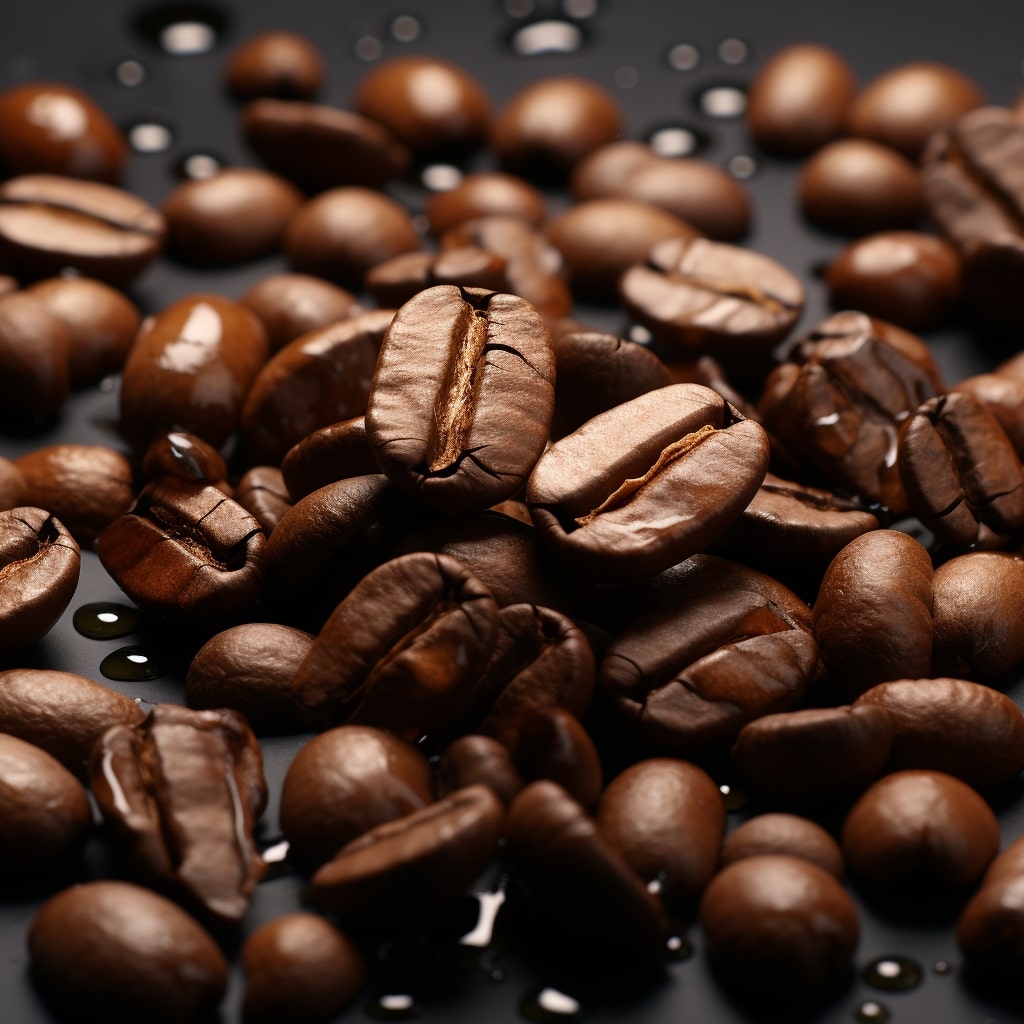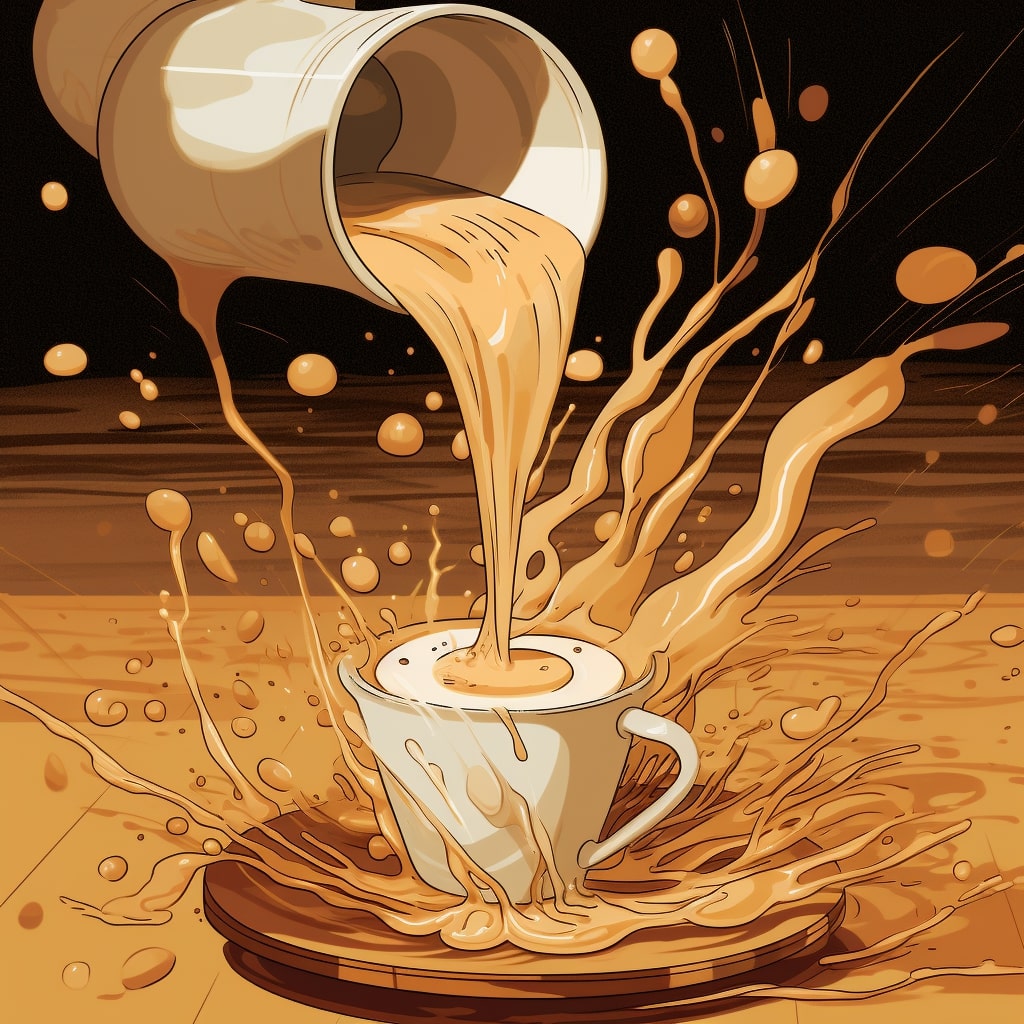When it comes to the morning brew, caffeine is often the main focus. Many people turn to coffee for its energy-boosting effects, but how does Irish Breakfast Tea compare? Does it have as much caffeine as coffee?
In this article, we will explore the caffeine content in Irish Breakfast Tea and compare it to that of coffee. We will also discuss the factors that affect caffeine absorption and how to make an informed choice based on personal needs and preferences.
Key Takeaways:
- We will explore whether Irish Breakfast Tea has the same caffeine content as coffee.
- We will delve into the caffeine content specifically in Irish Breakfast Tea.

Understanding Caffeine Content in Irish Breakfast Tea
Irish Breakfast Tea is a popular type of black tea that is known for its strong, robust flavor. It is often compared to coffee due to its bold taste and is a great option for those looking for a morning pick-me-up. But how much caffeine does it actually contain?
The caffeine content in Irish Breakfast Tea can vary depending on the brewing process and the type of tea leaves used. The longer the tea is steeped and the smaller the tea leaves, the higher the concentration of caffeine. On average, a 6-ounce cup of Irish Breakfast Tea contains between 40-70 milligrams of caffeine.
Compared to other types of tea, Irish Breakfast Tea has a higher caffeine concentration. For instance, green tea contains around 25-35 milligrams of caffeine per 6-ounce cup, while herbal teas such as chamomile contain no caffeine at all.
When comparing Irish Breakfast Tea with coffee, the caffeine content varies greatly. On average, a 6-ounce cup of brewed coffee contains between 70-140 milligrams of caffeine. This means that depending on the brand, Irish Breakfast Tea may have less caffeine than coffee. However, it is important to note that coffee is often consumed in larger quantities than tea, which can significantly increase the intake of caffeine.
Overall, it is clear that Irish Breakfast Tea has a moderate caffeine content that can provide a noticeable boost of energy. However, for those seeking a higher caffeine concentration, coffee may be the better option.

The Caffeine Content of Coffee
Coffee is one of the most popular drinks in the world, and it’s no secret that it contains caffeine. The amount of caffeine in a cup of coffee can vary depending on several factors, including:
| Factor | Effect on Caffeine Content |
|---|---|
| Brewing method | The longer the brewing time, the higher the caffeine content |
| Roast level | The darker the roast, the less caffeine the coffee contains |
| Serving size | A larger serving size will contain more caffeine |
On average, an 8-ounce cup of brewed coffee contains between 95 and 165 milligrams of caffeine, depending on the factors mentioned above. This is significantly higher than the amount of caffeine found in Irish Breakfast Tea.
It’s important to note that not all coffee drinks are created equal when it comes to caffeine content. For example, an espresso shot typically contains around 63 milligrams of caffeine, while a 16-ounce cup of brewed coffee from a popular chain can contain up to 320 milligrams of caffeine.
In the next section, we will compare the caffeine content of Irish Breakfast Tea and coffee directly to see how they stack up against each other.

Comparing Irish Breakfast Tea and Coffee
When it comes to caffeine content, Irish Breakfast Tea and coffee are often at the top of the list. But how do they compare?
| Beverage | Caffeine per Serving | Variations in Caffeine Content Between Brands |
|---|---|---|
| Irish Breakfast Tea | 50-120 mg | Can vary based on tea type, brewing time, and brand |
| Brewed Coffee | 95-165 mg | Can vary based on roast level, brewing method, and brand |
As shown above, coffee generally contains more caffeine per serving than Irish Breakfast Tea. However, it’s important to note that the caffeine content can vary widely based on factors such as brewing method, serving size, and brand.
In addition, individuals with caffeine sensitivity may experience different effects from Irish Breakfast Tea and coffee, regardless of their caffeine content. Some people may find that the caffeine in Irish Breakfast Tea has a more gradual onset and gentler effect than that in coffee, while others may experience similar effects from both beverages.
Ultimately, the choice between Irish Breakfast Tea and coffee comes down to personal preference and individual health considerations. Those who prefer a milder caffeine boost may opt for Irish Breakfast Tea, while those who need a stronger kick may choose coffee. It’s important to remember that moderation and listening to your body are key in making the right choice for you!
Factors Affecting Caffeine Absorption
While the caffeine content in Irish Breakfast Tea and coffee is important, the effects on our bodies depend on several factors that can influence caffeine absorption.
Individual metabolism plays a significant role in caffeine absorption, as some people metabolize caffeine quickly, while others do not. Body weight also affects caffeine absorption, as a larger body mass can dilute the effects of caffeine. Additionally, overall health can impact how the body reacts to caffeine, with certain medications or health conditions affecting how our bodies process caffeine.
It’s essential to be aware of these factors when consuming caffeine, as they can influence how much caffeine is absorbed and how it affects your body. If you’re unsure how much caffeine your body can handle, it’s best to start with a small amount and gradually increase your intake, paying attention to any adverse effects.

How Much Caffeine Do You Need?
Now that we’ve compared the caffeine levels in Irish Breakfast Tea and coffee, it’s important to consider your individual caffeine needs and preferences when choosing between the two.
According to the FDA, a moderate caffeine intake is considered to be 400mg or less per day. However, individual caffeine tolerance can vary greatly.
If you prefer a milder caffeine boost, Irish Breakfast Tea may be the better choice. With an average of 50-90mg of caffeine per 8-ounce serving, it can provide a gentle lift without the jitters that some people experience with coffee.
On the other hand, if you need a more substantial caffeine boost, coffee may be the way to go. A typical 8-ounce serving of brewed coffee contains between 95-165mg of caffeine, making it a stronger option for those who need a bigger pick-me-up.
Ultimately, the choice between Irish Breakfast Tea and coffee depends on your individual caffeine tolerance and desired effects. It’s important to listen to your body and make an informed decision based on your personal needs.
Conclusion
After exploring the caffeine content in both Irish Breakfast Tea and coffee, we can answer the question: does Irish Breakfast Tea have as much caffeine as coffee? The answer is no. While Irish Breakfast Tea does contain caffeine, the amount is lower compared to coffee.
When choosing between the two beverages, it’s important to consider personal preferences and health considerations. For those who prefer a milder caffeine kick or have caffeine sensitivity, Irish Breakfast Tea may be the better option. On the other hand, for those who need a stronger caffeine boost or enjoy the taste of coffee, brewed coffee may be the way to go.
Ultimately, the decision comes down to individual caffeine needs and preferences. It’s important to be aware of the caffeine content in both Irish Breakfast Tea and coffee and to make an informed choice based on personal tolerance and desired effects. Remember, moderation is key when consuming caffeine, and it’s recommended to limit intake to 400mg or less per day.
Thank you for reading this article and we hope it helps you make an informed decision on your next cup of tea or coffee.
FAQ
Q: Does Irish Breakfast Tea Have As Much Caffeine As Coffee?
A: In this section, we will explore whether Irish Breakfast Tea has the same caffeine content as coffee. We will discuss the caffeine levels in Irish Breakfast Tea and compare them with those found in a cup of coffee.
Q: Understanding Caffeine Content in Irish Breakfast Tea
A: Here, we will delve into the caffeine content specifically in Irish Breakfast Tea. We will explain how the brewing process and type of tea leaves used can affect the concentration of caffeine in Irish Breakfast Tea. Additionally, we will compare the caffeine levels in Irish Breakfast Tea with other types of tea and coffee.
Q: The Caffeine Content of Coffee
A: In this section, we will focus on the caffeine content of coffee. We will discuss the factors that influence caffeine levels in brewed coffee, such as the brewing method, roast level, and serving size. By comparing the caffeine content of coffee with that of Irish Breakfast Tea, we can better understand the differences between the two.
Q: Comparing Irish Breakfast Tea and Coffee
A: Here, we will directly compare the caffeine levels in Irish Breakfast Tea and coffee. We will provide a side-by-side analysis of the two beverages, discussing factors such as caffeine per serving, variations in caffeine content between different brands, and how they may affect individuals with caffeine sensitivity.
Q: Factors Affecting Caffeine Absorption
A: This section will explore the factors that can impact the absorption of caffeine in the body. We will look at how individual metabolism, body weight, and overall health can influence how our bodies react to caffeine in both Irish Breakfast Tea and coffee.
Q: How Much Caffeine Do You Need?
A: Here, we will address individual caffeine needs and preferences. We will discuss recommended daily caffeine intake, how different caffeine levels in Irish Breakfast Tea and coffee can meet various needs, and how to make an informed choice based on personal caffeine tolerance and desired effects.
Q: Conclusion
A: In this final section, we will summarize our findings and answer the question, “Does Irish Breakfast Tea have as much caffeine as coffee?” We will also provide guidance on choosing between the two beverages based on caffeine content, personal preferences, and health considerations.

